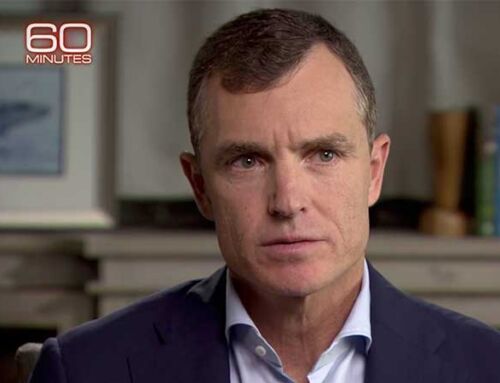On September 6, 2022, opening arguments began on the first day of trial in the state of New Mexico’s opioid case against Walgreens, Walmart, and Kroger. The three pharmacy chains were accused of turning a blind eye to red flag warning signs concerning prescription opioid painkillers, which they sold in high volumes throughout the state. The lawsuit, originally filed in 2017 against McKesson, Cardinal Health, AmerisourceBergen and Johnson & Johnson, was tried before 1st Judicial District Judge Francis Mathew without a jury at the Santa Fe County Courthouse in Santa Fe. The trial lasted seven weeks.
Former New Mexico State Attorney General Hector Balderas knew he had to make a bold move to save the citizens of his state. In 2017, New Mexico became the eighth state in the nation to file suit against opioid manufacturers and distributors. In February 2019, the state expanded its lawsuit to include several retail pharmacies, including Walgreens, Walmart and Kroger. The trial date for New Mexico’s lawsuit was delayed by the Covid pandemic, however, and ultimately wasn’t scheduled until September 2022, at which time Balderas said he was more than ready to hold pharmaceutical companies and retailers accountable at trial.
The state of New Mexico alleges that defendants were responsible for more than half of all the opioid pills dispensed across the land of Enchanted Living, according to Balderas, who was first to make an opening statement in the bench trial on September 6th. The State of New Mexico is represented by Dan Alberstone and Mark Pifko of Baron & Budd PC, Jeff Gaddy of Levin Papantonio Rafferty, Anthony Majestro of Powell & Majestro PLLC, and Luis Robles of Robles Rael Anaya.
State hard hit by opioid epidemic
In November 2020, former Attorney General Balderas declined to participate in a national settlement offer of $26 billion from the three largest drug distributors and Johnson & Johnson . He said he made his decision because overdose deaths in the state had significantly increased, going from 537 in 2018 to 605 in 2019. Officials from the New Mexico Department of Health believed that the proposed share from the settlement offer would not be enough to address the widespread issue of drug overdose deaths in his state.
In February 2021, the Centers for Disease Control and Prevention (CDC) released a report showing that in rural Rio Arriba County, New Mexico, opioid overdose morbidity was more than six times the national opioid overdose mortality rate of 18.3 deaths per 100,000 people. Overdose deaths in the sparsely populated region were also more than four times the state’s overall opioid overdose mortality rate of 26 deaths per 100,000.
In May 2021, a New York Times article cited a WalletHub study which found that New Mexico was on a list of the ten states with the worst drug problems in the country. By the end of May 2021, the New Mexico Human Services Department said New Mexico ranked 12th nationally for unintended overdose deaths that involve opioids and heroin.
Distributors and Johnson & Johnson Settle
In January 2022, after lengthy negotiations, former Attorney General Balderas announced that New Mexico would join in the national settlement with the three drug distributors as well as a separate settlement with Johnson & Johnson which provided for immediate payment of funds from Johnson & Johnson. Balderas said his state will receive more than $30 million from its deal with J&J, in addition to participation in the national settlement with McKesson, AmerisourceBergen and Cardinal Health, which required participation from local governments in the State.
By March 7, 2022, Balderas was able to obtain agreements with enough counties, cities and other municipalities in New Mexico to allocate opioid settlement funds to more than fifty communities, securing more than $195.5 million combined from McKesson, AmerisourceBergen, Cardinal Health and Johnson & Johnson. The deal provided more than $107 million to local governments throughout New Mexico and nearly $88 million to the state itself, the majority of which was earmarked specifically for opioid abatement efforts.
The funds would be arriving none too soon, as a study published in March 2022 in JAMA Psychiatry found that Latinos in the U.S. experienced a 40% spike in drug overdose death rates in 2020, a death rate that had been steadily increasing since 1999. The state of New Mexico, which has the largest Hispanic population in the nation, suffers greatly from opioid addiction disorders, with some Hispanic families impacted for generations.
Trial Begins
On September 6, 2022, New Mexico’s seven-week trial began against opioid retailers Walgreens, Walmart and Kroger, all companies that had resisted pressure to settle. The trial team, co-led by Dan Alberstone and Mark Pifko of Baron & Budd PC, Peter Mougey and Jeff Gaddy of Levin Papantonio, Anthony Majestro of Powell & Majestro PLLC and Luis Robles of Robles Rael Anaya, gathered at the First Judicial District Court complex in Santa Fe. They were ready to put on their case.
New Mexico “Flooded” With Opioids
During opening statements, former Attorney General Balderas compared the disbursement of drugs in his state by the three pharmaceutical retailers to that of flooding thirsty New Mexico with too much water, saying reckless opioid dispensing “smashed the dams” of addiction and overdose wide open. Pharmacies, he said, were supposed to serve a “vital position” of protection, but didn’t. Balderas told Judge Mathew at the beginning of trial that for years the retailers recklessly filled questionable opioid prescriptions despite the presence of “red flags” that should have drawn more scrutiny from the companies providing highly addictive drugs to the public.
Attorney Dan Alberstone, a shareholder at Baron & Budd, added during his portion of the opening statement that the three companies were responsible for the distribution of 550 million opioid pills in New Mexico from 2006 through 2019 – more than 263 pills for every New Mexico resident. By recklessly dispensing opioids, the three pharmacy giants facilitated the state’s opioid crisis, he said.
The Most Overdoses of Any State
On September 27, a white paper by FAIR Health revealed that between 2019 and 2021, New Mexico and Oklahoma had the highest proportion of patients with an overdose diagnosis of any state in the country, according to a review of private insurance claims. This new statistic supports comments attorney Dan Alberstone made during opening statements, explaining that the New Mexico opioid crisis was “a demon” that pharmacies have a legal duty to combat. Alberstone pointed out that New Mexico law requires pharmacists not simply to investigate suspicious opioid prescriptions but to resolve them and document the resolution. Had this law been followed, New Mexico’s loss of life to opioid overdose would not be so extreme, he told the judge.
A Proposed Remedy
Most lawsuits seek financial damages to compensate for harms committed by a defendant. But in its lawsuit against Walgreens, the attorneys for New Mexico asked Judge Mathew to order Walgreens to fund the cost of abating the opioid crisis by issuing a ruling that could positively impact the state’s citizens for generations to come. The State’s abatement plan was designed by principal research scientist and program director at the Pacific Institute for Research and Evaluation, Ted R. Miller.
At trial, Miller testified that his blueprint for abatement could lower prescription opioid overdose and death statistics to 1990s levels by 2042. The multi-billion-dollar bill would include costs for treatment, prevention and harm reduction and would provide money for transitional housing for patients fighting their opioid addictions, among other remediation efforts.
An Offer to Settle
Just before and during trial, amid testimony from both sides in the almost two-month bench trial between New Mexico and pharmacy retailers, negotiations to settle were underway with Albertsons, CVS, Kroger, and Walmart. Before the trial concluded, New Mexico secured a combined $274 million from Albertsons, CVS, Kroger, and Walmart. “When it comes to the opioid crisis, New Mexico is one of the hardest-hit states in the country and we are pleased that Albertsons, CVS, Kroger, and Walmart decided to resolve the litigation and contribute money to fund the state’s recovery,” said Mark Pifko, also a Baron & Budd Shareholder. “These settlements, along with nearly $200 million recovered from other defendants in New Mexico’s opioid litigation, will work toward its long-term goal of abating the opioid epidemic in the state.”
Closing Arguments
The State proceeded with the remainder of the trial against Walgreens, and on October 18, Peter Mougey of Levin Papantonio, speaking on behalf of former New Mexico Attorney General Hector Balderas, said that Walgreens’ own admissions at trial had provided enough evidence for Judge Mathew to rule that the company had contributed to the crisis by distributing and dispensing the addictive drugs irresponsibly. Dan Alberstone, representing New Mexico, closed out the seven-week trial by reminding Judge Mathew that Walgreens’ dispersal of 360 million opioid pills across New Mexico from 2006 to 2016 fueled a costly and deadly crisis that continues to ravage its citizens, and that Walgreens’ “failure to follow its own policies and train its own people was a significant cause of the opioid epidemic in New Mexico.” “The state has proven that the opioid crisis existing in New Mexico was a foreseeable consequence of Walgreens’ conduct,” Alberstone told the judge.
On November 9, New Mexico and Walgreens submitted written briefs to close out their opioid trial, with the State saying it wants approximately $25 billion to cover a twenty-year abatement plan. The state of New Mexico asked the judge to order Walgreens to immediately deposit $9.56 billion into a fund that will start to pay the costs of treating the addiction crisis. The State emphasized that it doesn’t see the amount as “punishment”, but rather how much money is actually needed to repair the harm caused by Walgreens’ conduct.
What Happens Next?
The opioid crisis has dramatically affected the State of New Mexico, causing major impacts to public health, public safety, and harms to children and families. For the past decade, the drug overdose rate in New Mexico has been one of the highest in the country, with almost every county experiencing a higher drug overdose death rate than the rest of the nation. As a result, the State of New Mexico has incurred substantial costs for medical care, addiction treatment, rehabilitation, and law enforcement.
As New Mexico awaits First Judicial District Judge Francis J. Mathew’s decision in its trial against Walgreens, Dan Alberstone and Mark Pifko of Baron & Budd have reflected on the enormity of the opioid crisis in the Land of Enchanted Living. The attorneys are passionate about their fight to protect New Mexico citizens and they are hopeful that justice will prevail so that the hard work can begin to make communities whole again.





